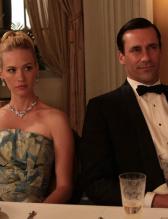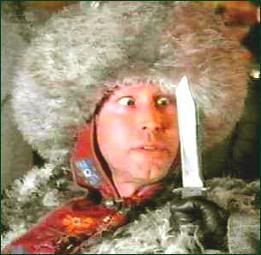A friend gave me a copy of his union's newsletter. The big article supported health care reform. At first I thought this union has good care, why would they want to jeopardize it? Then I remembered they're in bed with Obama so of course they support it.
The piece replied to six "myths" about reform, responding with "facts." Let me quickly go over them. (Clarification note: the myths are in quotes--the union thinks they're all incorrect, of course. The comments following are mine, responding not to the myths, but the union's arguments against them.)
1. "Reform doesn't affect people who already have health insurance."
This isn't usually a big point--in fact, usually this "myth" is sold as a good thing. But I guess since everyone reading the newsletter has insurance, the union feared complacency and wanted to make it clear that reform will help even them.
I should note that one of their counter-arguments is the cost of Medicare and Medicaid are bankrupting us, and a public option will provide competition to help keeps costs down. So a huge government program is unaffordable, and the only solution is more government. (It is true that a government takeover of health care could potentially keep costs down, but only by lowering the quality of care.)
2. "A public plan option will force all Americans into a government-run program."
Just because the strongest voices in favor of reform want this to happen doesn't guarantee it will. But it's no good to keep saying people will get to keep their insurance if they like it when, after the government gets more involved, there'll be forces beyond their control deciding who gets what.
3. "Reforming health care will cut Medicare benefits for seniors."
I think we know that somewhere along the line, someone's gotta lose something. The most obvious target is seniors since they consume so much health care and have so much money. But I suppose if they lobby enough they might be the ones who are protected.
4. "Co-ops are an adequate substitute for a national public insurance plan."
The argument against this is co-ops simply wouldn't be big enough to have effective bargaining power against the health insurance industry. So we see, at the very least, the union foresees a massive government program, no matter what the demand. And if no one wants the government program? I guess that's not allowed to happen.
Anyway, why are co-ops too small to fight? If they're any good, they'll get more and more people. That's how competition works. Unless we're talking about a union-supported massive government spending program, where the idea is to knock out the insurance industry.
5. "America's deficit will increase by $1 trillion due to healthcare reform and force many familes to go broke."
Here's the union's argument: "President Obama has said he will not sign a bill that would add to the national debt or deficit." So there you have it--in addition to his other abilities, he's clairvoyant. Bills of this sort always cost more than advertised, but President Obama knows exactly how much the final tab will be.
The union goes on: "[President Obama] has proposed that two-thirds of the cost of reform be paid by reducing waste, fraud and abuse in exisiting programs and ending overpayments to insurance companies." This is great--we can save hundreds of billions just by making Medicare more efficient. And apparently the government's been overpaying insurance companies for a long time--quite a scandal. I guess, like Dorothy, politicians have always had the power to run government health programs better, but Obama is the first one to click his heels. Let's make a deal. If he can cut half a trillion from Medicare over the next five years, we'll let him pass any law he likes.
By the way, the other third of that trillion will be paid for by cutting deduction from couples earning over $250,000. (This means, of course, they'll do the same to single people making $125,000+. ) These allegedly rich people have become the Democrats' favorite punching bag, but they're already paying everyone's taxes. There's only so much more you can get out of them, and when you do, you remove it from the economy elsewhere, where it does stuff like create jobs and keep businesses afloat.
6. "Congress is moving too quickly."
The union says the time for healthcare reform is now. Perhaps. But if this is a crisis, it's a long-running crisis. Since passing reform is likely irrevocable (as its advocates know), shouldn't we take our time? And since all the different plans under discussion don't have the benefits kick in until 2013 or later, they apparently don't believe there's a rush, either.




















